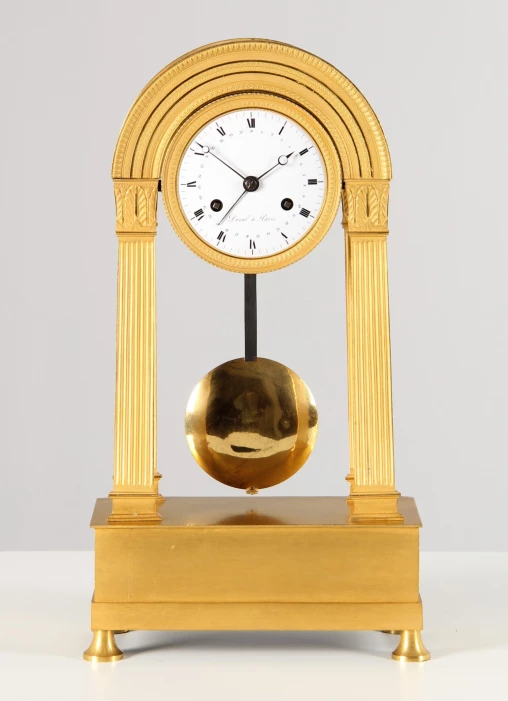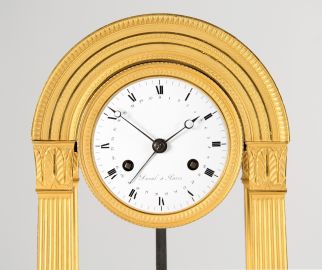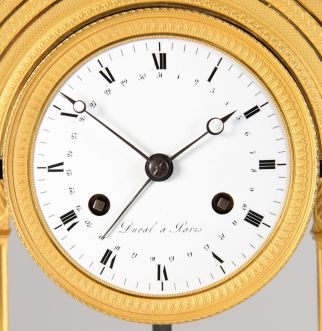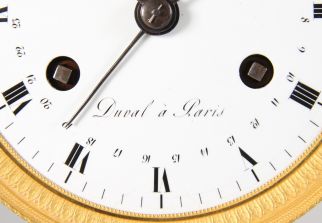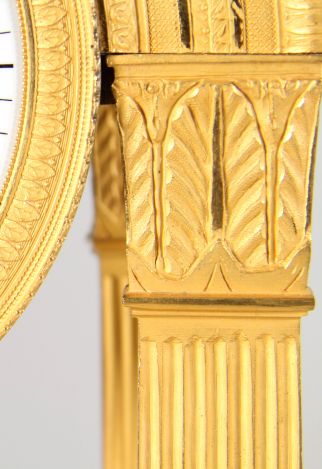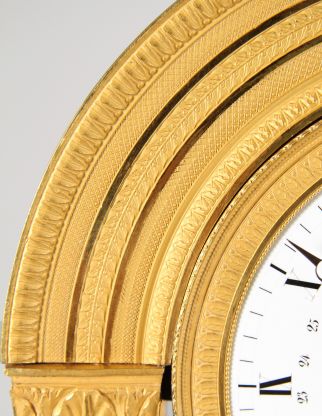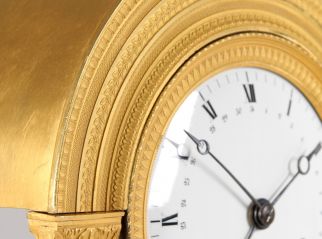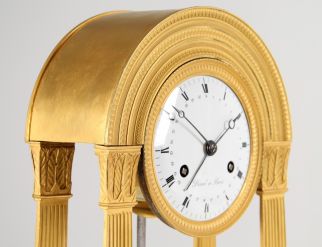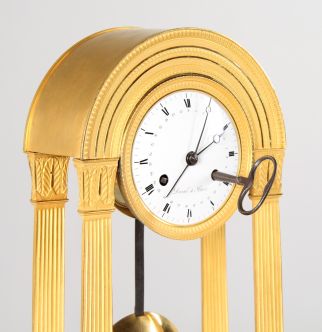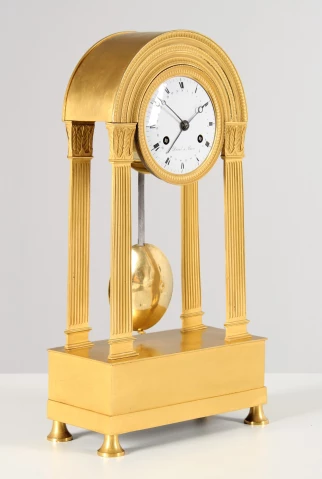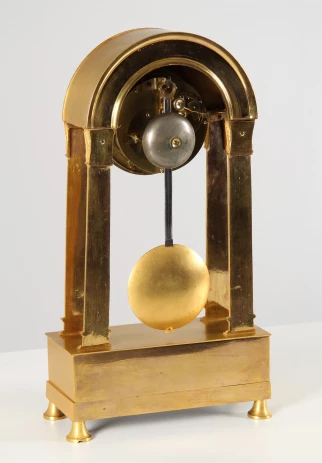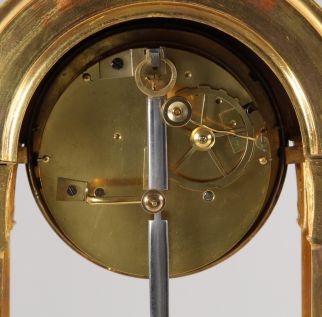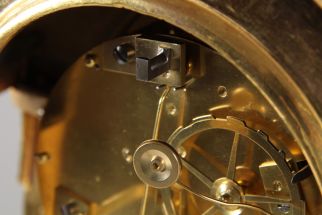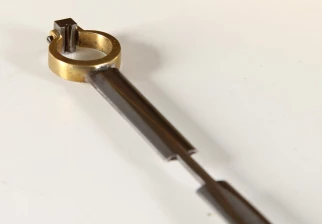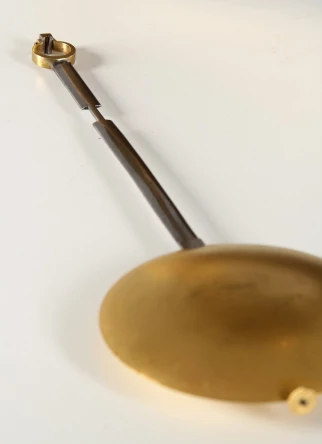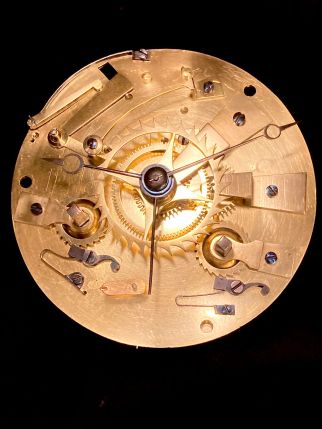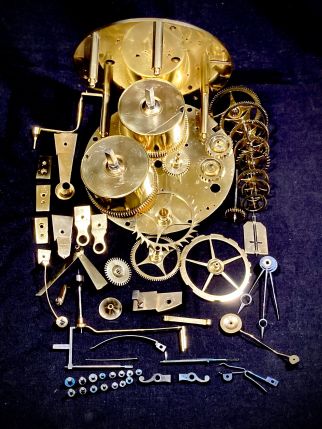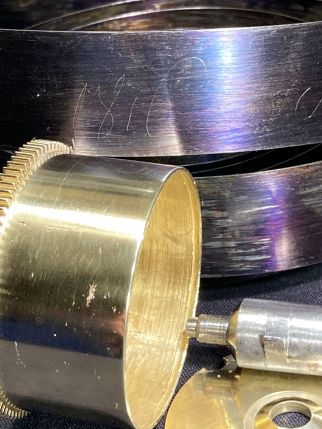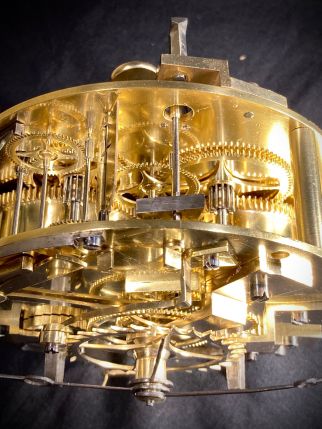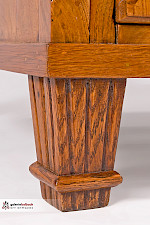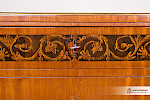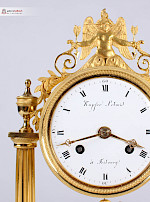Antique French round arch portal clock
France (Paris)
Bronze, enamel
Empire circa 1820
Dimensions: H x W x D: 47 x 26 x 12 cm
Description:
Very beautiful, strictly architecturally designed mantel clock, so-called portal clock.
Rectangular base standing on simple bell feet. Four flat, fluted pilasters with palm-leaf shaped capitals stand on top. They support the large round arch and the movement mounted in it.
The round arch front with its five archivolts is absolutely impressive in both its size and its fineness. We see ornamental bands as well as those of tendrils and foliage. The bezel is seemingly seamlessly integrated into the ensemble of arches and perfectly sets off the equally finely designed dial.
The black numerals and Breguet hands on white enamel ensure that the time is easy to read. Another simple hand indicates the date.
The clockmaker's signature is centred below the winding holes: Duval à Paris.
According to Tardy - Dictionnaire des Horlogers Francais, the Duval clockmaking family is documented in several locations in Paris in the first quarter of the 19th century. It can be assumed that the clock offered here was made in the workshop on the Quai de la Mégisserie, which existed there from 1815-1820.
A striking feature of the French pendule movement is the knife-edge suspension of the pendulum. Such suspensions are particularly rare and are otherwise primarily found in high-quality precision clocks.
The basic idea behind the knife-edge suspension is that, due to the lack of contact surface, the knife-edge support enables a practically friction-free pendulum movement. In addition, the centre of rotation of the pendulum is precisely defined by the cutting edge like in no other pendulum suspension [Klaus Dinger - Die Großuhr p. 42].
The clock strikes a bell on the half and full hour.
When dismantling and cleaning the movement, a signature with the date -1816- was noticed on the springs (see photo). As the springs were certainly not made by the clockmaker himself, but were bought in even then, it can be assumed that this signature was made by the springmaker.
Condition:
The movement has been completely dismantled and overhauled from the ground up. It runs reliably and accurately.
Price: 3000,-€
You will find a clock with a very similar appearance in the specialised literature:
Tardy - La Pendule Francaise 2ème Partie p. 388
Article found under: Clocks
Add to shopping cartVideo portal clock Duval
Also interesting
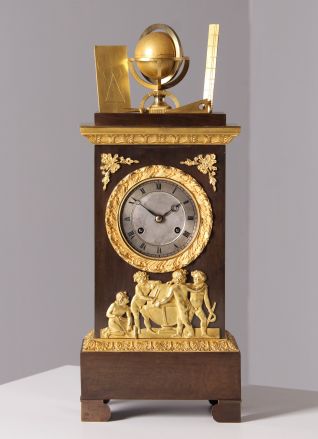
Charles X Mantel Clock "Astronomy"
France
Bronze
Charles X around 1830
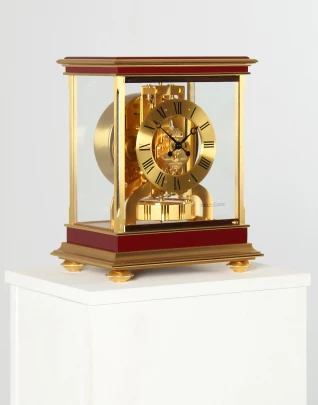
Jaeger LeCoultre - Atmos Royale Ref. 5855
Switzerland
Gold-plated and lacquered brass
Year of manufacture 1980
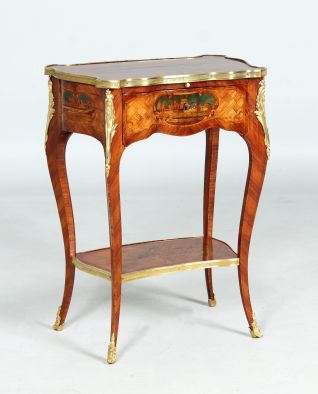
Finely inlayed ladies' desk
Paris
Rosewood a.o.
around 1880
